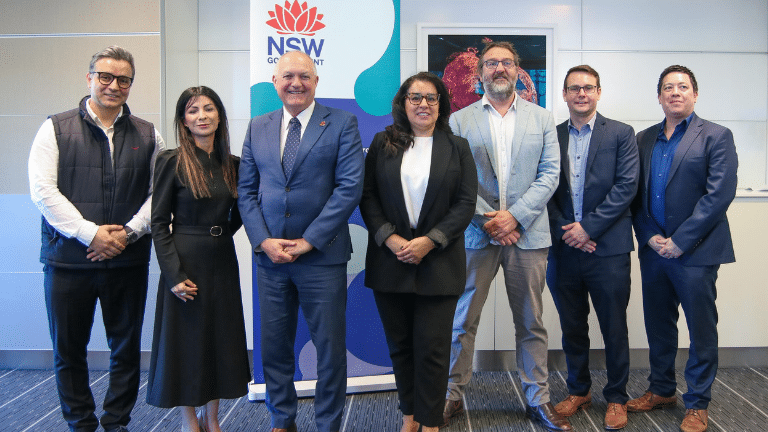
This groundbreaking initiative aims to reduce and ultimately replace the use of animals in medical research by fostering the development and adoption of innovative alternative methods.
The NSW government has committed $4.5 million to create NAT-Net, which will bring together leading experts from institutions across the state, including our partners the University of Newcastle, as well as UNSW Sydney, University of Wollongong, University of Technology Sydney, University of Sydney, Victor Chang Cardiac Research Institute, and the Children’s Medical Research Institute.
HMRI will play a crucial role in this network, contributing over 25 years of extensive medical research expertise.
The initial focus of the network will be to develop and produce innovative human cellular models that reproduce human development and diseases and offer capabilities to assist the research community and pharmaceutical industry in testing novel therapies. In the longer term, the network will act as an umbrella to coordinate state and national capacity across a diverse range of new non-animal technologies including computer simulations, synthetic biology and cell-free models.
This is not the first, nor will it be the last time, HMRI has been at the forefront of this contentious issue.
HMRI is a signatory to the Openness Agreement on Animal Research and Teaching in Australia (August 2023), which aims to promote openness and support well-informed public discussion
Under the Openness Agreement, HMRI and other signatories have committed to:
1. Being open about our involvement in the use of animals.
2. Enhancing our communications with the media and the public about our use of animals.
3. Providing proactive opportunities for the public to learn about research or teaching involving the use of animals.
4. Reporting annually on our efforts to improve openness in our use of animals.
HMRI continues to show real-life change, conducting NSW’s FIRST organoid-guided clinical trial to improve cystic fibrosis treatment, in collaboration with clinicians from Hunter New England Local Health District. As founding members of the Newcastle Human Organoid Program for Effective New Therapies (NEW HOPE), we are dedicated to advancing organoid research and precision medicine, focusing on lung, gut, and kidney diseases.
Professor Simon Keely will represent HMRI on the NSW Government’s NAT-Net committee, ensuring the needs and voices of regional Australians are well-represented, once again underscoring HMRI’s commitment to addressing the unique health challenges faced by our communities.
Professor Simon Keely’s expertise is in immunology and microbiology. He established the Gastrointestinal Research Group at the HMRI, now a leading research group of clinicians and biomedical scientists researching the molecular mechanisms of disease in the gastrointestinal tract.
HMRI is committed to leveraging the capabilities of NAT-Net to enhance our research and development efforts. By using organoid models of human disease and AI-based drug design, we can speed up the development of new therapies and improve efficiency. The use of these 3D organoids in clinical trials will also significantly advance precision medicine and patient outcomes.
HMRI is leading the charge in pioneering non-animal technologies, reaffirming our dedication to innovative research that promises to transform medical science and patient care.
HMRI would like to acknowledge the Traditional Custodians of the land on which we work and live, the Awabakal and Worimi peoples, and pay our respects to Elders past and present. We recognise and respect their cultural heritage and beliefs and their continued connection to their land.

Hunter Medical Research Institute
We’re taking healthy further.
Locked Bag 1000
New Lambton
NSW, Australia, 2305



This site is protected by reCAPTCHA and the Google Privacy Policy and Terms of Service apply.
Copyright © 2024 Hunter Medical Research Institute | ABN: 27 081 436 919
Site by Marlin Communications
